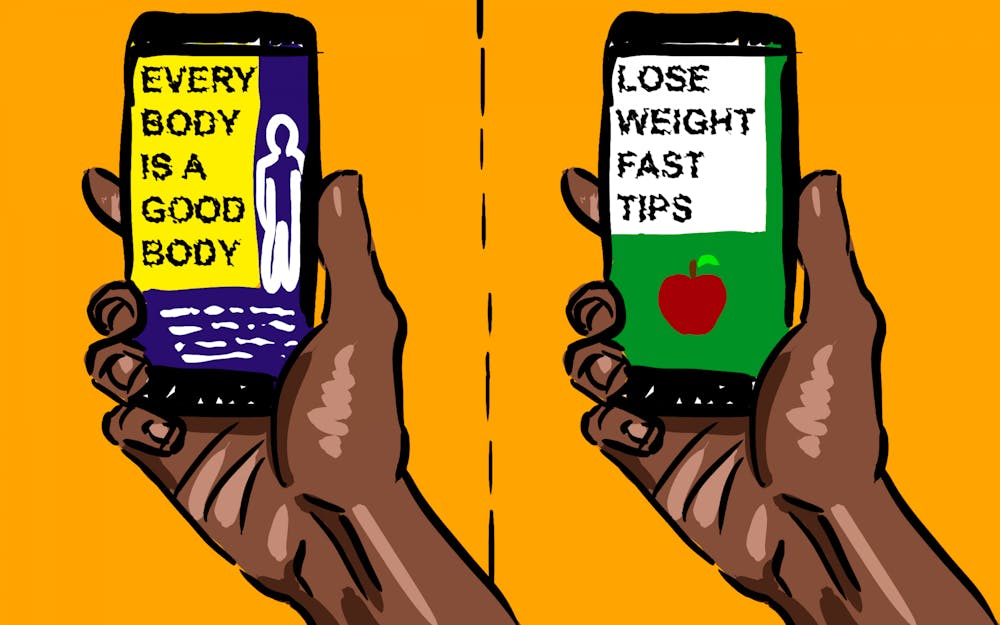To say Generation Z has the worst body dysmorphia and body image issues of any other generation prior is a controversial statement. After all, our parents, Generation X, grew up in the rise of diet culture. They grew up with the ideology that being thin and conventionally attractive was more important than their wellbeing.
The number of times I have heard a Gen X parent say, “Nothing tastes better than skinny feels,” should be a crime.
Gen Z was raised by these parents who are obsessed with dieting and being skinny. Many of them fought to not pass this on to their children, but in their efforts, they created the exact opposite result.
As children, hearing “I’m so fat,” or “I have put on so much weight” makes any child more aware of their body. Suddenly, they are aware there are things to be insecure about. They begin to notice these insecurities all on their own.
In a study done by Common Sense media, 80% of girls have been on a diet by age 10.
[Related: OPINION: Society hates to see big girls win]
We can’t place all the blame on our parents, though. In fact, they were trying their best to shelter us from this part of the world. Although our parents may have stemmed the initial awareness of our bodies, there was a much larger factor at play.
The biggest culprit for our generation is social media.
Gen Z grew up in a social media-filled world. From the moment we were conscious of the world, we had technology and some form of social media presented in front of us. Celebrities became idolized for their small frames and flat stomachs. With platforms such as Instagram coming into the mainstream, it opened a door for others to post unrealistic or even photoshopped images of their bodies, creating a toxic environment open to people of all ages.
Social media created platforms that allowed people to share only the positive and unrealistic aspects of life. For young children, consuming that media all day can be really detrimental. Seeing models in size 00 or photoshopped images of Kim Kardashian being praised for their body size and shape creates the idea that every girl must look like that to be considered pretty.
The toxic environment created on social media should be considered the root cause of body dysmorphia in young children.
Yet, social media has provided another aspect to our generation's view on body image.
[Related: Your body is an accessory, whether you like it or not]
The new “body positivity” movement has taken rise in the last 10 years. Women of all shapes and sizes have taken to social media to dismantle toxic body image beliefs and fatphobia. They show how to be confident, despite what we have been taught as children. It has opened the door to a new appreciation of beauty in body size.
Growing up being able to watch role models such as Drew Afualo, Spencer Barbosa and Zach Miko breaks down the stigma surrounding body image and society’s definition of ‘beauty.’
Drew Afualo makes videos fighting back against misogynistic comments and teaching girls about their worth. Spencer Barbosa has created a page revolving around loving your body and being confident in your own skin. Zach Miko focuses on loving your body right now. Not later, not after a diet, not after working out, but exactly as you are now.
This has created a new healthy environment for those struggling with body image, body dysmorphia and disordered eating.
The contradiction of our generation has created a controversial discussion. Every aspect of our world revolves around body image. Whether it is positive or negative, it is shoved down our throats in all aspects of life. So, although it might be hard to say that Gen Z has the worst body image issues, it isn’t a stretch to claim that our generation is the most body-conscious.
Gentry Keener (she/her) is a sophomore studying journalism and political science.






